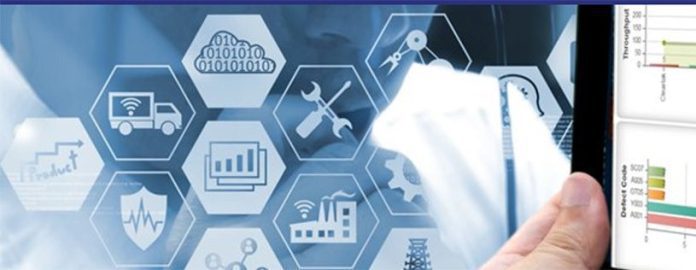It’s a fast-paced world. This is especially true in the world of manufacturing. To keep pace and stay competitive, manufacturers must adopt a strategic, targeted approach to production — and that means going digital. However, today’s definition of digital implies more than software downloads and automated systems. Modern digitalization refers to big data, analytics, connectivity, and intelligence across multiple platforms, such as an entire factory.
Digital factories are transforming the speed and accuracy of manufacturing, allowing for real-time plant data and management via digitally and IoT-connected systems and infrastructures. The Internet of Things (IoT) lets connected devices or machines “communicate” important data, schedules, commands, and maintenance issues through the Cloud, with an end goal of increased performance and production.
Although this ultimately translates into greater efficiency for employees and plant operators, digitalization typically takes time to learn and fully implement at a manufacturing facility.
“The costs and complexity of deploying a conventional, on-premise MES platform can result in a time to value of between nine and 18 months for basic functionality,” says Srivats Ramaswami, CTO of 42Q, a provider of Cloud manufacturing execution systems (or MES). MES is used to digitally connect, track, and monitor manufacturing data on a factory floor. It is an integral part of a digital factory.
Ramaswami points to recent findings from LNS Research, which shows that most manufacturers can see significant benefits from a properly executed MES deployment. However, only 20% of manufacturers are currently using this technology. Reasons given for the low adoption rate include cost, complexity, and risk of business interruption.
To ease the transition, 42Q had developed a Digital Factory Starter Kit to minimize the time and risk of digitalization using MES. In fact, 42Q says the Starter Kit enables manufacturers to realize value from digital factory transformation in as little as two weeks.
“While easy to deploy, the Digital Factory Starter Kit is a complete solution enabling companies to manage quality and operations, monitor yields, WIP [work in progress], and throughput in real time,” says Ramaswami. “This solution is proven and already deployed in many manufacturing facilities in highly regulated industries, including medical, aerospace, and automotive manufacturing.”
The Digital Factory Starter Kit is currently implemented in more than 50 factories worldwide and includes key capabilities such as:
- Shop order management
- Serialized inventory
- Process routing control
- Quality control plans
- Cycle-time management
- Traceability features and genealogy
- Employee verification
- Electronic work instructions
The Digital Factory Starter Kit also includes 42Q’s Business Intelligence module, which provides a dashboard and tools for real-time alerts from manufacturing operations. It even includes a virtual factory map for at-a-glance status updates on operations.
Learn more at https://www.42-q.com/starter-kit/digital-factory-starter-kit/

